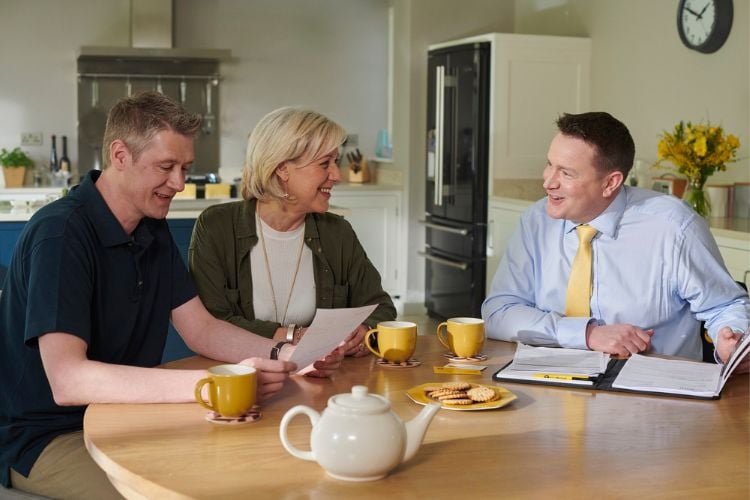What does the Autumn Budget mean for you?
The Chancellor’s Autumn Budget contained several important announcements that could affect your finances. We’ve outlined a summary of the key points below for you.
Income Tax
The headline grabbing announcement was the decision to increase the rates of Income Tax on rental income, savings interest and dividends from shares.
The rates will increase on rental and savings interest by 2% (to 22%, 42% and 47%) from April 2027. The increase in tax on dividends will take effect from April 2026 with the basic and higher rates increasing to 10.75% and 35.75% respectively. The additional rate will remain unchanged at 39.35%.
In addition, the freeze on the tax-free personal allowance and the points from which 40% and 45% tax becomes payable have been extended for a further three years until April 2031. This will see a growing number being dragged into paying higher rates of tax as incomes increase.
This continued freeze on allowances and the increase in tax on rental, savings and dividend income makes it more important than ever to take advantage of your ISA allowance to protect income and gains from tax.
Inheritance Tax
The Chancellor announced that the tax-free allowance of £325,000 and the additional amount available if passing your home to a ‘direct descendant’ will be frozen for an additional year until April 2031.
The changes announced previously, to limit the protection from Inheritance Tax when passing on farms and qualifying businesses, by restricting Agricultural and Business property relief at 100% to £1m per person, and 50% on qualifying assets above this amount remain unchanged. However, it was announced that any unused part of the £1m allowance can be transferred to a spouse or civil partner.
The changes which come into effect from April 2026 will have a significant impact on farmers, landowners and business owners. It’s important to take advice on the new rules and how they impact you and your family.
Pensions
Despite predictions that the many tax advantages of pensions would be trimmed back, they were left largely untouched.
The Chancellor did announce plans to cap the benefits of salary sacrifice, where an employee gives up part of their earnings in exchange for an employer pension contribution. Currently neither the employer nor the employee pays National Insurance on the amount ‘sacrificed’. From April 2029, this will be capped at £2,000 per employee each tax year. Any amount above this will be subject to both employer and employee National Insurance.
As previously announced most unspent pension funds will be included in the Inheritance Tax calculation on death from April 2027.
Despite this, pensions remain one of the most tax-efficient ways to invest. In addition to tax relief on what you pay in, any growth is free from UK Income Tax and Capital Gains Tax. Up to 25% of your fund can be taken as a tax-free lump sum (capped at £268,275 unless you have protection).
If you think you may be impacted by any of these changes, it’s important to take advice before making any decisions.
ISA Allowances
The continued freeze on the tax-free Income Tax Personal Allowance, Dividend Allowance, Savings Allowance and Capital Gains Tax exemption makes it more important than ever to take advantage of your ISA allowance to protect income and gains from tax.
The allowances remain at £20,000 per adult and £9,000 per child each tax year.
The Chancellor did announce plans to limit the cash ISA allowance for the under 65s to £12,000 each tax year from April 2027, with the remainder of the £20,000 allowance being available to invest in stocks and shares ISAs.
How did the markets react?
Market reaction was fairly muted, with some relief that the budget largely followed the script laid out in the media beforehand. Government bond yields on longer term debt fell as the Office for Budget Responsibility (OBR) released supportive near-term growth and inflation forecasts. Gilt sales required over the remainder of the fiscal year were also announced, coming in marginally better than market expectations. Sterling was broadly unchanged against the Euro and US Dollar. UK equities were slightly higher in aggregate, with some specific moves relating to how tax changes on property, gambling and investment reliefs were set to be implemented.
Judging by the initial reaction, the Budget appears to have placated both markets and backbenchers for now. We will see over the coming weeks and months whether the political noise which has hung over government bond markets quietens down and whether in turn investor and consumer confidence builds further.
The value of investments can fall as well as rise and you may get back less than invested.
The tax treatment of pensions and ISAs depends on your individual circumstances and may change in the future.
NFU Mutual Financial Advisers advise on NFU Mutual products and selected products from specialist providers. When you contact us we'll explain the advice services we offer and the charges. Financial advice is provided by NFU Mutual Select Investments Limited.
Please note that Inheritance Tax advice is not regulated by the Financial Conduct Authority or the Prudential Regulation Authority.

Looking for financial advice?
If you’re not sure how to put your financial plan in place we can help. An NFU Mutual Financial Adviser will recommend products that are right for you based upon your personal circumstances. You can book an appointment with an NFU Mutual Financial Adviser by either calling: 0800 622 323 or requesting a call back.